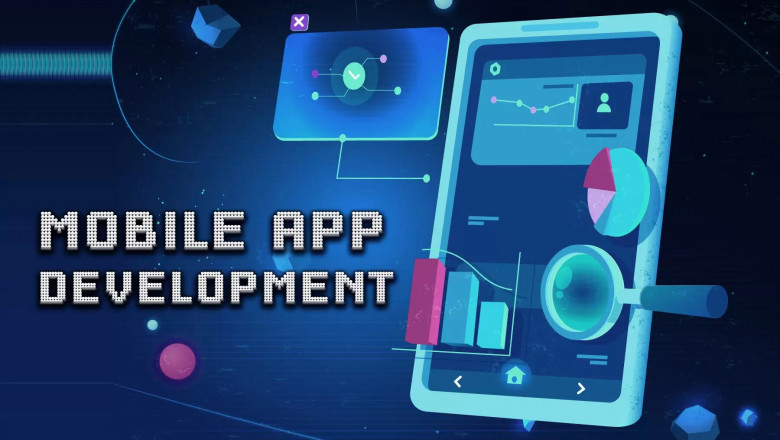views
In the rapidly evolving digital healthcare ecosystem, mobile applications have become indispensable tools for improving patient care, enhancing operational efficiency, and facilitating real-time communication between healthcare providers and patients. However, the development of a healthcare app is only the beginning of its lifecycle. Continuous mobile app maintenance is crucial to ensure that these apps remain secure, reliable, and compliant with regulatory standards. As the healthcare industry becomes increasingly mobile-driven, maintenance services play a vital role in supporting the long-term success and functionality of mobile health applications.
The Growing Role of Mobile Apps in Healthcare
Mobile apps are transforming the healthcare industry. From telemedicine platforms and remote patient monitoring apps to appointment scheduling, prescription management, and mental health support tools, healthcare apps are now central to patient engagement and digital health delivery.
With increased adoption comes greater complexity. Healthcare apps must interface with Electronic Health Records (EHR), adhere to data privacy laws such as HIPAA, support real-time communication, and manage vast amounts of sensitive personal data. Given this critical role, app maintenance isn’t just a matter of adding new features—it is essential to patient safety and the overall performance of healthcare systems.
Why Maintenance is Critical for Healthcare Mobile Apps
-
Regulatory Compliance Updates
Healthcare is one of the most heavily regulated sectors. Laws such as HIPAA in the U.S., GDPR in Europe, and similar legislation elsewhere impose strict requirements on how patient data is collected, stored, and shared. Mobile app maintenance services ensure apps stay compliant with ever-changing regulatory standards by applying timely updates and conducting security audits. -
Bug Fixes and Performance Optimization
Bugs, crashes, and slow performance can lead to significant disruptions in healthcare delivery. Maintenance services routinely monitor the app's performance, address software bugs, and optimize speed and responsiveness. This is especially crucial in clinical settings where time-sensitive decisions rely on app data and functionality. -
Security Enhancements
Healthcare data is a prime target for cyberattacks. Outdated software is vulnerable to breaches, ransomware, and other threats. Regular updates, patch management, and security audits provided by maintenance services safeguard user data and ensure high levels of cybersecurity. -
Compatibility with Devices and OS
With frequent updates to operating systems (iOS, Android) and a variety of devices in use, app compatibility issues can quickly arise. Maintenance services ensure that healthcare apps remain functional across different platforms, screens, and device versions. -
User Experience (UX) Improvements
Patient and clinician feedback is vital for enhancing usability. App maintenance allows for the incorporation of user feedback, interface improvements, and feature updates that enhance the overall experience and satisfaction.
Key Components of Healthcare App Maintenance
-
Preventive Maintenance
This involves regular monitoring to detect potential issues before they impact functionality. It includes updating APIs, libraries, and backend systems that the app relies on, as well as performing regular system diagnostics. -
Corrective Maintenance
When issues such as bugs or performance bottlenecks arise, corrective maintenance ensures swift resolution. This type of maintenance is reactive but essential to minimize downtime and disruption in healthcare services. -
Adaptive Maintenance
Adaptive maintenance ensures that the app continues to function smoothly in changing environments. Whether due to OS updates, third-party integration changes, or hardware upgrades, this form of maintenance is key to app longevity. -
Perfective Maintenance
Focused on improving the app’s functionality and performance based on feedback and analytics, perfective maintenance helps healthcare apps evolve over time to better meet user needs.
Benefits of Ongoing App Maintenance in Healthcare
-
Reduced Downtime: Timely maintenance reduces unexpected outages that can interrupt care delivery.
-
Improved Patient Outcomes: Ensuring real-time access to accurate data and communication tools supports better clinical decisions.
-
Cost Efficiency: Addressing issues early through maintenance is less expensive than major overhauls or crisis management after a failure.
-
Competitive Advantage: A well-maintained app offers smoother experiences, encouraging greater patient and provider engagement.
Choosing the Right Mobile App Maintenance Provider
Healthcare organizations should partner with maintenance providers that have a deep understanding of the healthcare industry’s unique challenges and compliance landscape. Key traits to look for include:
-
Experience in Healthcare IT
-
Strong security credentials
-
Ability to offer 24/7 monitoring and support
-
Compliance expertise (HIPAA, HL7, FHIR, etc.)
-
Flexible service models (monthly, annual, or pay-as-you-go)
Outsourcing to a dedicated mobile app maintenance team ensures that in-house staff can focus on core healthcare delivery while experts manage the technology infrastructure.
Future Outlook
As AI, IoT, and wearable integration become more prevalent in mobile healthcare, the need for sophisticated maintenance services will grow. Predictive maintenance using AI and machine learning will soon allow developers to anticipate issues before they arise, making apps more resilient and adaptive.
Moreover, with the global rise in telehealth and remote care, the reliance on mobile apps as primary care platforms will increase. This makes maintenance not just a technical requirement but a strategic healthcare priority.
Conclusion
In the healthcare industry, Mobile App Maintenance Services is far more than an IT function—it's a fundamental part of delivering safe, secure, and high-quality care. A well-maintained app not only protects patient data and ensures compliance but also improves health outcomes, builds trust, and sustains engagement over time. As healthcare becomes more digitized, continuous app maintenance will remain critical to the sector’s transformation.














Comments
0 comment